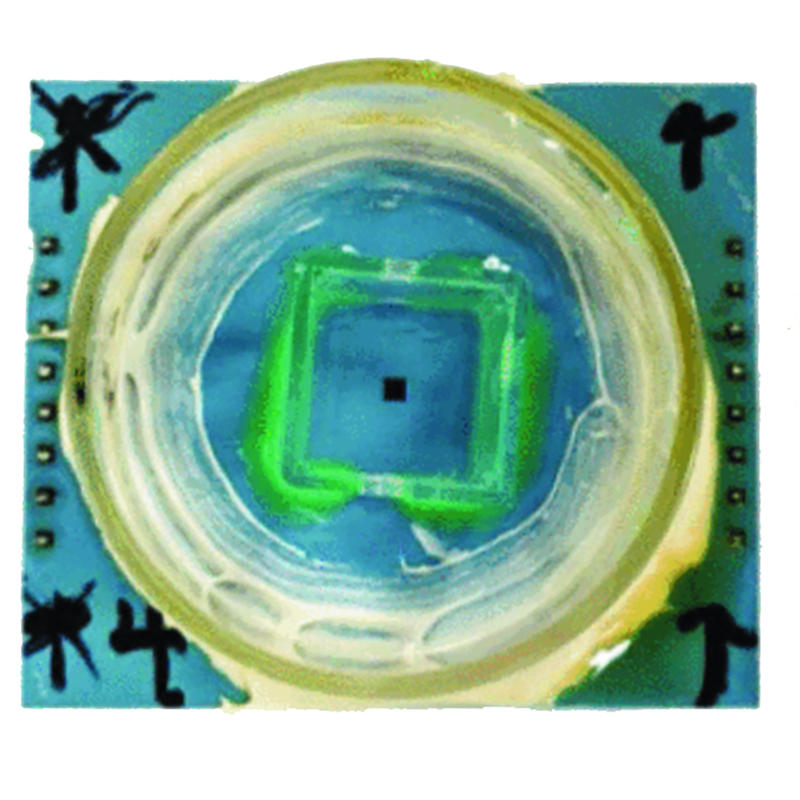 |

|
 |
The proposed platform. |
|
Complementary metal-oxide-semiconductor (CMOS)-based microelectronic sensors have great potential in the development of biosensors for medical and life science applications. Lab-on-CMOS microsystems incorporate one or more CMOS chips that can perform laboratory functions directly on the surface of the chips, allowing for intimate contact between sensing inputs and the cells under analysis. However, validating these lab-on-CMOS systems is a challenging task because of the difficulties in obtaining simultaneous ground-truth imaging and sensor data.
ISR-affiliated Professor Elisabeth Smela (ME), Professor Pamela Abshire (ECE/ISR), and two of Abshire’s graduate students, Bathiya Senevirathna and Sheung Luhave, have developed the first real-time imaging platform that generates high-quality images of lab-on-CMOS systems in cell culture environments. The platform was used to validate a CMOS capacitance sensor that monitors cell viability, proliferation, and death.
Several in vitro experiments were performed with human ovarian cancer cell lines where time-lapse images and capacitance recordings were performed simultaneously over three days. The images not only corroborated the temporal changes of capacitance recordings as the cells proliferated, but also unambiguously confirmed the sensor’s ability to detect single-cell binding events, track cell morphology changes, identify cell division events, and monitor cell motility.
“An Imaging Platform for Real-Time In Vitro Microscopic Imaging for Lab-on-CMOS Systems,” a paper based on their work, was presented at the 2019 IEEE Biomedical Circuits and Systems Conference (BioCAS).
Related Articles:
New website showcases work of Clark School’s microelectronics researchers
Alum Marc Dandin Appointed to Carnegie Mellon Faculty
Decade of TMV research leads to never-before-seen microsystems for energy storage, biosensors and self-sustaining systems
Adjustable Drug Release Marks New Milestone in Ingestible Capsule Research
Miao Yu to develop cost-effective sensor for measuring lake health
Pneumatically controlled soft robotic catheters offer accuracy, flexibility
New ‘FRRB’ packaging technology may solve an ingestible capsule challenge
Ghodssi invited speaker at NIMH workshop on sensor technologies to capture the complexity of behavior
MSAL’s work on serotonin characterization and detection results in two journal covers
Undergrads and research experiences: Win! Win! Win!
December 11, 2019
|

